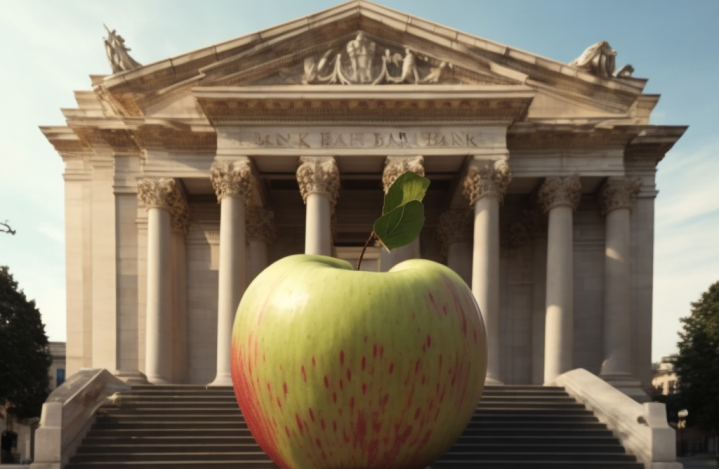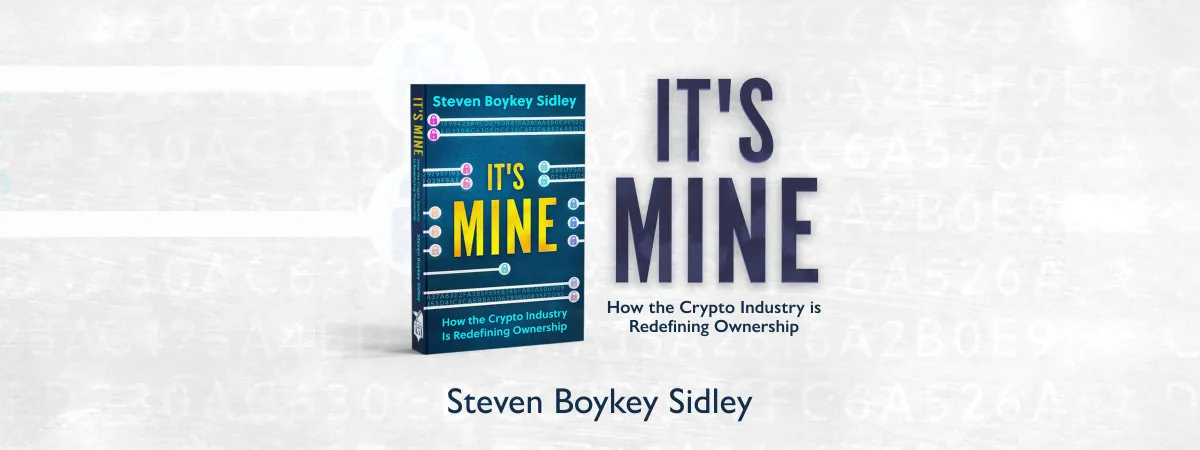GUEST ESSAY
Apple vs Goldman Sachs – A pending divorce in the land of the giants of finance and technology

The background to the $3-billion bust-up between Apple and Goldman Sachs – and who’s crying the hardest.
There was an item widely reported last week in the tech news. And the business news. And the news news.
It was a head-scratcher when I read it. It has everything to do with the future of tech and finance and the race to swallow consumers whole. Which is an interesting story on its own, but even more interesting when it involves giants like Apple, Goldman Sachs, ExTwitter (excuse the pun; I am sure I am not the first) and the Chinese company TenCent.
The story that broke was that a 4-year partnership between Apple and Goldman Sachs is on the rocks, and that a divorce is imminent.
Here is the background:
TenCent in China is the owner of an app called WeChat. Actually, it is not just an app, but is graced with the moniker “superapp”, because most Chinese citizens do not need another app. It has everything – payment, gaming, chat, ecommerce and 3.5 million apps, called “mini-programs” – tightly bound to the WeChat ecosystem. More than 1.2 billion people use this app, including almost everyone in China between six and 64.
WeChat has been the envy of the big techs for a long time; they have managed to encircle their succubus tentacles across a massive user base creating such a hermetically sealed ecosystem that they can add revenue streams at will, taking a cut of everything. While Western companies can claim mini-monopolies (Google, Uber, AirBnB, Twitter, Facebook), they cannot claim the all-encompassing digital handcuffs of WeChat.
Why?
Payment.
Payment is the glue that makes WeChat sticky. The app is used to pay for everything, anywhere, including a candy bar from a sidewalk vendor.
Which brings us to the news announcement. Apple’s aspiration to be in the payment and finance space had been burbling for a long while. So when the Goldman Sachs partnership was announced four years ago, commentators all nodded their heads – a superapp was on the horizon. Apple’s blue-chip brand value and Goldman Sachs’ financial depth seemed like a match made in heaven.
The first service out of the gate was to use Goldman Sachs’ backend to launch an Apple credit card, supplemented in April 2023 with savings accounts offering some of the highest rates in the US with no fees, no minimum deposits and no minimum balance requirements. Along with eye-watering interest rates and other goodies.
It seemed as though Apple had cracked the superapp code and incorporated the superglue of payment and finance with one of the world’s most respected financial brands. They had beaten their rivals to the punch, and we were all soon to feel their tentacles tightening around us even more than with their current iconic lineup.
So what happened? And who’s crying now?
It turns out that it is not Apple crying (although they are probably a tad grumpy). What happened is Apple had negotiated such a good deal with Goldman Sachs (who had long been trying to find a route to consumer banking to add to their wildly profitable investment bank) that Goldman found themselves actually losing money on the deal. How much? $3-billion in three years for their consumer banking division. That’s got to hurt. Enough to cry.
According to The Information, the pending divorce is because of a continuing series of tensions and missteps. The conservative East Coast banking culture did not meld well with the Silicon Valley company’s ethos. Some features failed to launch, like cashback. There were squabbles over the physical card design, customer agreements, billing statements, dispute resolution and late-arriving customer statements.
It got worse. Tim Cook, Apple’s chief, had his Apple credit application first rejected, then embarrassedly hushed up and quickly sorted out. Goldman Sachs was also investigated for gender discrimination and credit reporting snafus, unrelated to the Apple partnership. Finally, to add insult to injury, Goldman Sachs did not collect any standard annual fees, late fees or fees for foreign transactions – because that’s what Apple negotiated.
Ouch.
A word about Twitter/X. Musk’s background is in payment, PayPal. He has made no secret of his desire to consolidate Twitter, banking, crypto, AI and lord knows what else into a hairy audacious monster of an app. But, given his inept careening around at Twitter since the acquisition, I am not sure that he understands what it is going to take. Maybe if he handed over the reins to someone who does, he might have a shot, but egos of his size hand over nothing to no one.
Of course, Apple will find another finance partner as they keep on trying to rule the world. Amex has been bandied about, but there are numerous huge consumer banks who would kill for their customer base. No doubt Google is salivating too, with their massive Android reach, and one assumes that payment functionality has been in the works for a while.
But the whole concept of a superapp leaves a bad taste in my mouth. Handing over that much of one’s day-to-day interactions with the digital world to a single centralised player sounds like a terrible idea.
Perhaps not for the average Chinese citizen, but definitely for the rest of us. DM
Steven Boykey Sidley is a Professor of Practice at JBS, University of Johannesburg. His new book, It’s Mine: How the Crypto Economy is Redefining Ownership will be published in 2023.

















 Become an Insider
Become an Insider
Apple probably only needed Goldman’s banking license. It certainly does not need their backoffice systems as it processes hundreds of times as many transactions as Goldman in just the AppStore. Apple’s subscription business alone dwarfs Goldman Sachs. Remember : Goldman does not process vendor card transactions – the likes of Visa, Mastercard, etc perform that role. All the banks merely present your Visa transactions to you on their statement, they do NOT process that $5 coffee payment to Starbucks.
I am a bit one-eyed on matters Apple and would get an Apple Bank account the moment it is available here. Probably not for day to day banking, but in addition to a local bank. Why? I have trust Apple’s privacy and integrity.